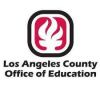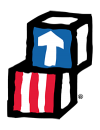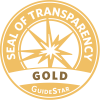Strengthening Communities
One Neighborhood at a Time
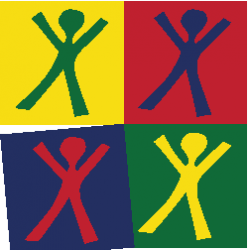
By Para Los Niños Team
August 30, 2022
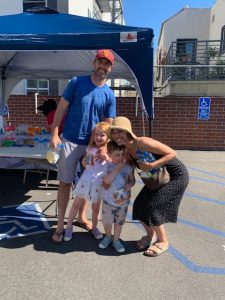
Neighborhood Leadership Groups (NLGs) are vital groups centered around bolstering the leadership capacity of community members to share resources, cultivate emotional resilience, and mobilize residents to collectively address systemic conditions that perpetuate inequities and trauma. They are also one part of the PILA initiative run by PLN.
“It was a God-send scenario when I first learned about the NLG group,” said LA Metro member Sarah. Sarah was one of the four representatives who led the Red Shield Salvation Army Neighborhood Leadership Group based in the LA Metro Area this past year. “It was during a time I needed help but couldn’t get it; I was hit with COVID and didn’t know how to handle the black hole of darkness I was in. I tried to seek therapy, but was told I had to wait at least three months with no guarantee of an appointment because the facility was severely understaffed. It was embarassing to admit that I needed profesional help for feeling so depressed. In the midst of that, the NLG felt like a giant support group. I remember saying to them, ‘Yall have been more a therapist for me than an actual therapist.’”
In Sarah’s time there she helped increase involvement from 50 to 130 members. Sarah believes that what drove the rapid growth was the critical need for resources and community interest in learning more through the workshops they offer. “At the beginning of pandemic, PILA’s NLG’s were giving trauma-based workshops, which is when I joined this NLG as well through the recommendation of another member,” remembers Sarah. “In the beginning, I wanted to come because PILA offered resources and a network of support that I needed as a mother at the time, but what made me stay were the amazing workshops, the learning, and authentic community. It’s like a forum, where if you didn’t know about a resource, a member will share it, and then it will get you excited to share with others around you. I’ve personally become more resourceful to my family and friends who lean on me. And I keep coming back. Every session brings up a case that I, or someone I know, went through. Then our group discusses, shares resources, and bounces ideas off each other, which I really enjoy. I’ve also learned so much from members asking questions that I didn’t have.”
“I was taught the impact of trauma both physically and psychologically. I gained sense of myself, my problems, and how to handle my family. If it wasn’t for the members’ extensive support and testimonies, I would’ve been lost. I had people experiencing what I was experiencing and that was a huge Ah-ha! moment. I realized, ‘Hey it’s my own neighbors, friends and relatives that sometimes have the best answers. Not only that, they can cry, share, and laugh with me.’ Now I understand the value of community because of PILA,” said Sarah of her experience.
NLG’s are community run and most importantly, community led with representatives coming from a nomination and voting process. The groups tend to reflect the demographic of their neighborhoods, with members ranging from 25 years old to their 60’s. “You will see members that remind you of yourself, your grandma, mom, uncle and aunt. It’s a well-rounded mix of individuals,” added Sarah.
Housing rights , mental health workshops, and crossing technological and language barriers are the most in-demand needs from Sarah’s NLG. To address these needs PILA:
- Holds a longstanding partnership with Strategic Actions for a Just Economy (SAJE), which hold monthly presentations on renting laws like the Los Angeles Tenant Anti-Harassment Ordinance, contracts, and how to navigate landlord harassment.
- Has attorneys in attendance to directly address community members’ questions.
- Collaborates with the Department of Mental Health to host mental health workshops – most recently a series was on Suicide Prevention Training.

Although seeing her NLG grow more connected and empowered is immensely fulfilling, Sarah says her favorite aspect of being a representative has been the monthly leadership training held for just the representatives. “The curriculum enhanced my leadership and communication skills, which I apply to other areas of my life as a student, parent, mom, and community member,” says Sarah.
Sarah recollects, “I was so used to sitting in the back of the room and not being noticed. But I found myself asking questions here and there, participated a little too much, and before you knew it, I was nominated to be a representative. That felt like a big iceberg hitting me – I didn’t know what to do, but I took on the opportunity thinking, ‘PILA gives so much to community members and although I feel like I don’t have much to give, I can give my time. I believe in [PILA]. They believe in me and my family. So what can I do for them and my community?’ My whole journey came back full circle. I approached this role as both a challenge but also a continuation of what I was previously doing: learning with everyone and getting through obstacles together. I never thought I could do something like that. I’ve grown in owning my voice and dealing with different backgrounds, cultures and personalities as a result of being a part of this group.”
Together, NLGs tackle inequities by first strengthening protective factors such as: parental resilience, social connections, linkage to concrete support in times of need, parenting and child development training, and promotion of social emotional well-being of children.
If you want to join a local NLG, make a difference in your community, and live in the zip codes that PILA serves, call the following about your interest:
- Enedina Meza at 323-636-6673 if you live in 90023,90063, and 90033;
- Olga Gonzalez at 213-590-3249 if you live in 90057, 90026, and 90015; and
- Elva Bran at 213-908-3892 if you live in 90017, 90021, and 90012.
You are welcome here. There is no membership fee and attendance is purely voluntary by all our members.
“NLGs are here to help the community and be present with you. There is no obligation for attendees other than to participate, listen, and share your ideas,” says Sarah. This community cares about what you think, your hopes, how you and you family are doing and what your family needs to grow and be uplifted.”



